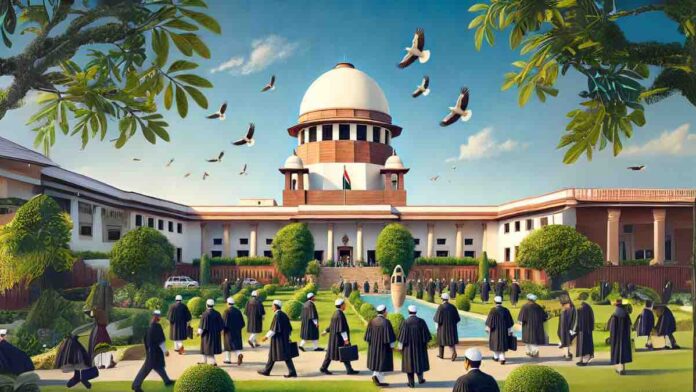The Supreme Court of India, in a judgment delivered by a bench comprising Justice N.V. Anjaria and Justice Atul S. Chandurkar, has dismissed an appeal filed by a woman challenging the disbursement of motor accident compensation, holding that a party cannot be permitted to “approbate and reprobate” after voluntarily accepting their share of the award.
To Read More Please Subscribe to VIP Membership for Unlimited Access to All the Articles, Download Available Copies of Judgments/Order, Acess to Central/State Bare Acts, Advertisement Free Content, Access to More than 4000 Legal Drafts( Readymade Editable Formats of Suits, Petitions, Writs, Legal Notices, Divorce Petitions, 138 Notices, Bail Applications etc.) in Hindi and English.




